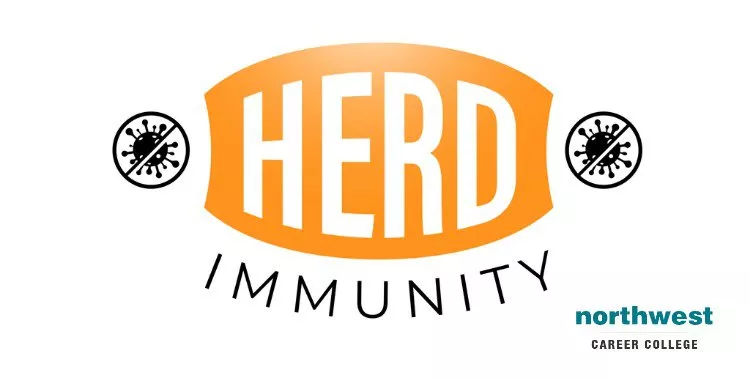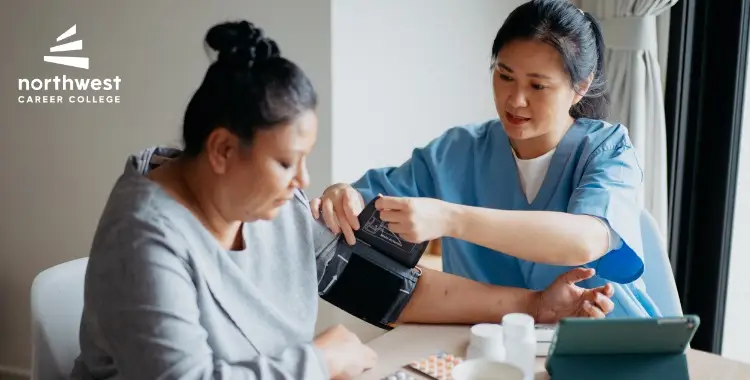What Is Herd Immunity?
- Medical Assistant
- March 11, 2024
- 3.8k views
- 5 min read

One of the talking points that has been in the news cycle in recent months regarding the COVID-19 is the concept of ‘herd immunity’ and the possibility of its use to end the threat of
Coronavirus.
In this article, we’ll be looking at what the term herd immunity means, how it can be achieved, and why it is crucial to the outcome current virus crisis.
Table of Contents
What Does Herd Immunity Mean?
In its most simple terms, herd immunity means that around 70% to 90% of a population has developed the necessary antibodies to be functioning immune to a particular disease.
If around 80% of people in the US were immune to COVID-19, for example, the four out of every five people who came in contact with an infected person would not become sick, significantly reducing the spread of the disease.
How Is Herd Immunity Achieved?
Herd immunity is achieved in one of two ways. The first is through vaccination and is the most effective of the two options. Large scale vaccination programs have already been effective at eliminating previously serious diseases such as measles, mumps, polio, and chickenpox in the US. Outbreaks of these diseases are usually restricted to areas or communities with lower vaccine coverage and don’t spread to the broader population.
The second route to herd immunity is through a large percentage of the population catching, surviving, and developing the correct antibodies to become immune to the disease they had contracted.
This route to herd immunity has significant downsides, especially in the case of COVID-19. Firstly, contracted herd immunity only lasts for one generation and is not passed down from parent to child. For example, many of the survivors of the 1918 flu pandemic developed an immunity to the H1N1 virus. However, later generations did not have the same immunity leading to the 2009-10 outbreak of H1N1, more commonly known as the swine flu epidemic.
Secondly, the infection and death rate for COVID-19 is high enough that if around 70% of the population needed to contract the disease to develop herd immunity, then the death rate and the strain on the US medical system would be overwhelming.
Vaccination is the safest and most effective solution to developing herd immunity to COVID-19, which is why such an emphasis has been placed on creating one.
Is Herd Immunity Effective?
As mentioned earlier, herd immunity through vaccination is why we no longer have to worry about diseases like measles, mumps, polio, diphtheria, rubella, and chickenpox. Herd immunity through vaccination is also responsible for the complete eradication of the smallpox virus.
The variola virus, also known as smallpox, was a virulent disease affecting most of the world through repeated epidemics that killed 3 out of every ten people with the disease and left those who survived with permanent scaring over large parts of their body, especially their faces.
Thanks to vaccinations developed based on the work of an English doctor named Edward Jenner, the World Health Organization (WHO) initiated the Global Smallpox Eradication Program in 1959 and, through a program of intensive vaccination, was able to completely eradicate the disease by May 8, 1980.
What Can We Do While We Wait?
While scientists across the globe are working hard on a vaccine for COVID-19, the most sensible thing to do is concentrate on reducing the number of possible infections and reducing the strain on the healthcare system.
According to the CDC, the best way to prevent yourself from becoming infected with COVID-19, and to ensure you don’t infect others, is by taking the following precautions:
- Avoid significant events and mass gatherings
- Avoid close contact with anyone who is sick or has symptoms
- Stay home as much as possible and keep a distance of around 2 meters between yourself and others
- Wear a face covering in public spaces
- Avoid touching your eyes, nose, and mouth.
- Clean and disinfect high-touch surfaces, such as doorknobs, light switches, electronics, and counters, on a daily basis
- Wash your hands often with soap and water for at least 20 seconds, or use an alcohol-based hand sanitizer that contains at least 60% alcohol
Start Your Career In Medical Assisting Today!
Here at Northwest Career College, we have a student-focused attitude that prioritizes giving our graduates the training and skillset they’ll need to excel as medical assistants. Our established and seasoned instructors work with you, teaching you every aspect of Medical Assisting.
If you’d like to learn more about what our medical assistant course can offer you, call one of our enrollment specialists at (702) 403-1592 today. We provide flexible learning, with online and on-campus morning, afternoon, and night classes to accommodate your Las Vegas work and family schedule. Once you’ve graduated, our dedicated and experienced Career Services team will work with you to help you find the best employment opportunities in Las Vegas. Call us now on (702) 403-1592 to start your journey!



